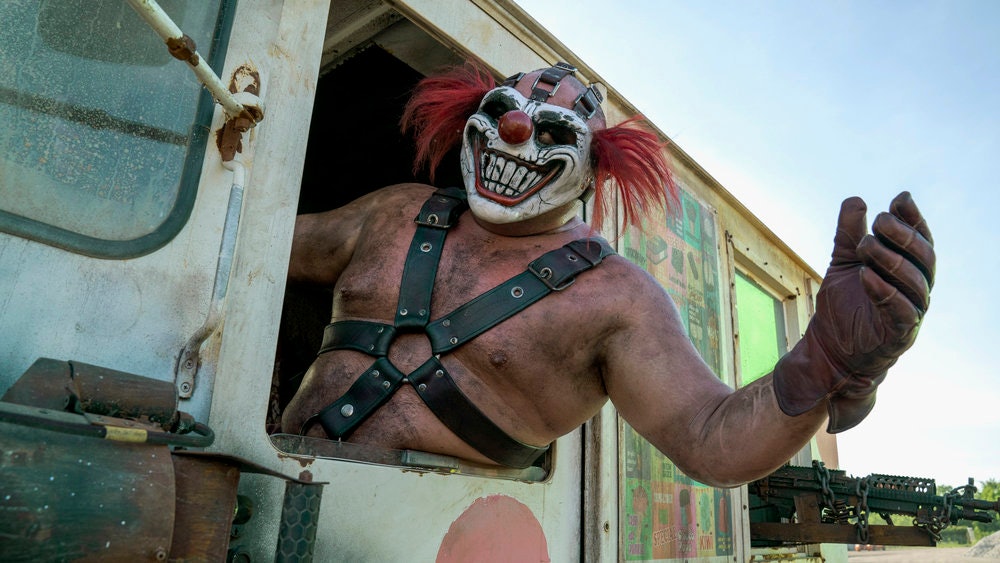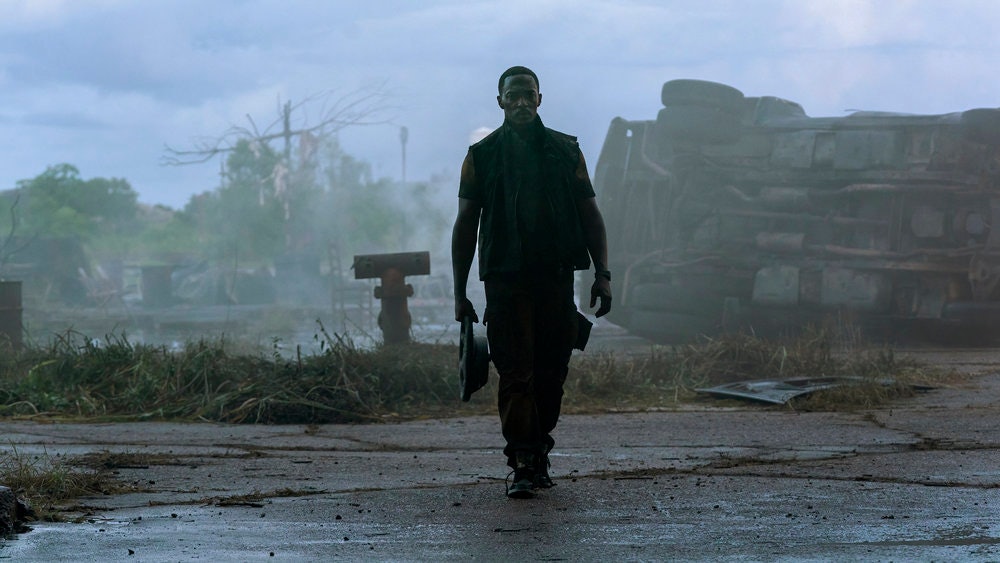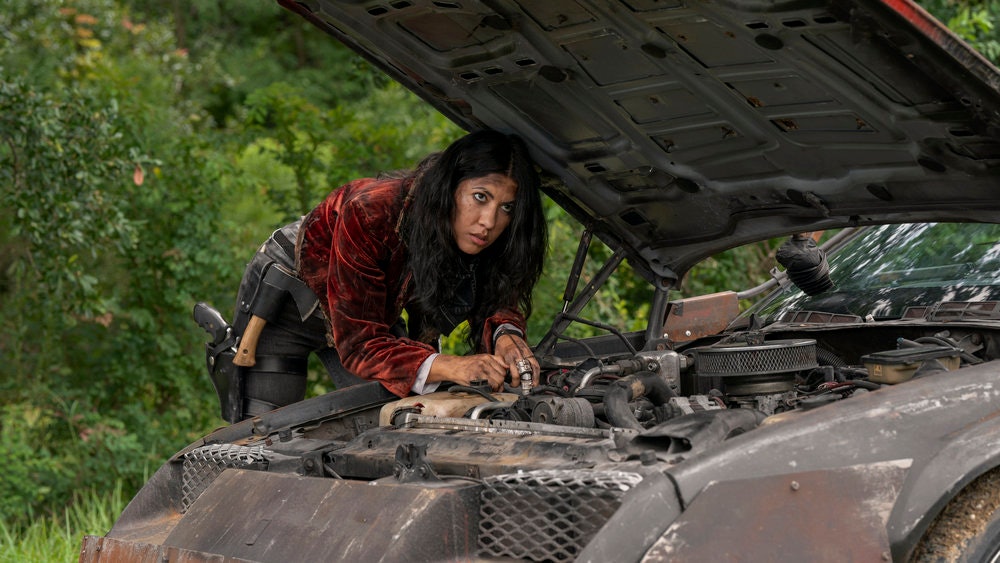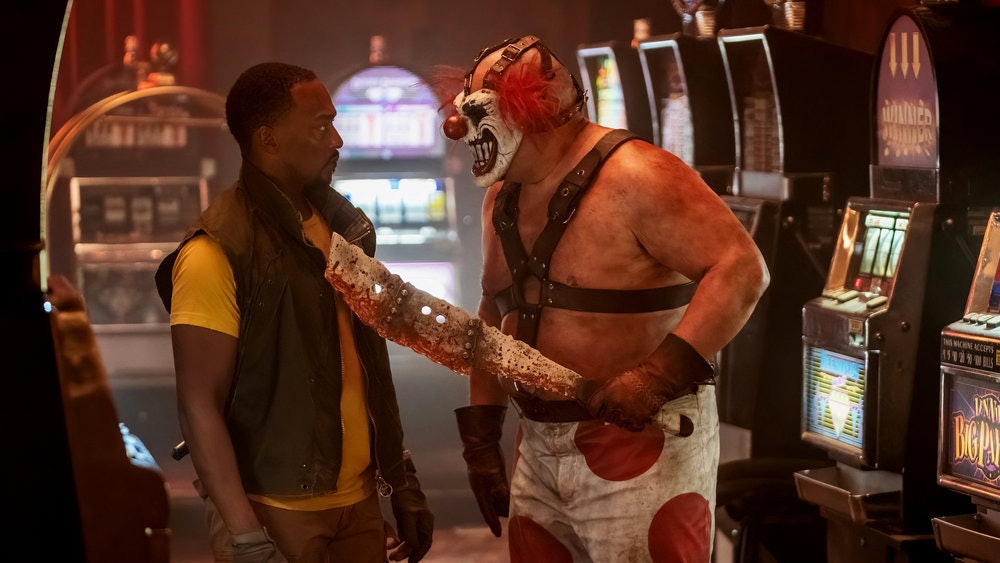
There was never any chance that Twisted Metal would be 100% faithful to its source material. Even if it wanted to be, it’s not exactly possible. The PlayStation series has been alive and kicking for nearly 30 years, and it’s amassed a devoted fandom in the process. Newer incarnations of the game attempted to flesh out the sparse premise of the original, but Twisted Metal has always truly been about one thing: carnage.
Vehicular warfare is the name of the game. There are no heroes, just delightfully demented maniacs trying to murder each other with their cars. That makes for a fun party game, but it saddled the Twisted Metal team (led by showrunner Michael Jonathan Smith) with a difficult challenge.
The weird thing is, it totally works. The 10-episode Peacock original is the latest in a long line of video game adaptations, but it’s the first in recent memory to buck the pressures of “prestige TV” and blaze a blissfully irreverent trail. Twisted Metal embraces the pitch-black chaos of its source material while bringing timely themes to the fore. What results is a series with real heart, if not a relentless cruel streak.

Twisted Metal sets its action 20 years after a cataclysmic event wiped out the global computer grid. Society ground to a halt and pop culture never evolved beyond the early ‘00s. (Great for the folks that still think “Barbie Girl” is the bop of the century. Bad for pretty much everyone else.) While America’s mega-cities became walled-off fortresses, the rest of the country devolved into a post-apocalyptic wasteland filled with ravagers, cannibals, and “Milkmen” — desperados using DIY weapons and fast cars to transport goods across the Divided States of America.
John Doe (Anthony Mackie) is one such Milkman, one of the best on the west coast. He’s making good money across what remains of California, but a persisting case of amnesia has left him longing for a home he’s never known. When he’s hired for a major delivery in exchange for permanent citizenship in New San Francisco, John may be able to put down roots. But he’ll have to travel farther than he ever has — across uncharted terrain to New Chicago and back — to finally settle down.

Twisted Metal is not so much about vehicular warfare as it is the perils of a very familiar dystopia. As with apocalyptic adventures like Mad Max, the cars are just a means of survival. The series is more concerned with the people fighting for their right to exist in a world that doesn’t care if they do.
Beneath its surface-level mayhem, Twisted Metal is also very much about class struggle, police brutality, and the uncomfortable rise of religious extremism. John and Quiet’s (Stephanie Beatriz as a grounded and enigmatic co-star) odyssey allows the series to tackle its timelier themes head-on, and while things can get pretty dark, pretty fast, there’s always a well-timed joke right around the corner.

Twisted Metal also does well to honor the games whenever possible. It helps that fan favorites, like the murderous clown Sweet Tooth, play major roles in the series. Twisted Metal reintroduces the character as a Sisqó-obsessed thespian who also happens to be a mass murderer. He’s got some great machete-swinging moments in later episodes, but one brief use of “The Thong Song” in Episode 2 might just be his finest hour. (Isolated on Twitter, the internet ripped that clip apart. As per usual, the internet was wrong.)
While the production isn’t as consistent as it could be thanks to some low-budget VFX and costumes, Twisted Metal still surprises. If it’d been made even a decade ago, it’d be the kind of C-Movie cult classic with its own vocal fanbase. Hopefully the same can be said for the series: its diversion from the source material may alienate the most hardcore video game fans, but it’s still well worth the trek to Peacock — if only to luxuriate in a bit of vehicular mayhem.






